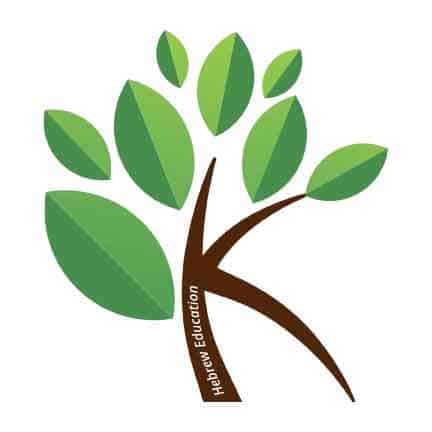I’m glad that you’re back for my third Bite-Sized Hebrew Lesson, part of my monthly Hebrew Through Reading (HTR) series. (In case you missed the first two, you can read lessons one and two here.) As usual, we’ll translate a quote word by word, phrase by phrase, using my four steps to improving Hebrew reading.
I’ve added something NEW to this lesson as well – a short audio supplement! It gives you some more information about the words and phrases used in the quote, and related grammar points. I’d love it if you took the survey at the end, and let me know your thoughts. Todah rabah in advance! 💙

Listen to me read the quote here 3x
.אֵין סִיכּוּי שֶׁנוֹלָדְתִּי רַק כְּדֵי לְשַׁלֵּם חוֹבוֹת וְאָז לָמוּת
אֵין [ein] is an adverb that means there isn’t or there aren’t. If it’s followed by a noun, it refers to the absence of that noun, meaning there is no [noun] or there are no [nouns].
סִיכּוּי [sikui] is a masculine noun that means chance or possibility.
Since סִיכּוּי is a noun that follows the adverb אֵין, together the phrase literally means: There is no chance/possibility…. In every day speak, אֵין סִיכּוּי is how we say no way or there’s no way.
שֶׁנוֹלָדְתִּי [shenoladti] is a combination of the prefix שֶׁ [she], and the past-tense verb נוֹלָדְתִּי [noladti]. The prefix שֶׁ is a conjunction that means that, which, or who, depending on the context. The past-tense verb נוֹלָדְתִּי that means I was born. It’s the first person, singular, past tense form of the nifal verb לְהִיווָּלֵד [l’hivaleid], which means to be born.
So far, we have: There’s no way that/which/who I was born. Based on the context – the words before the שֶׁנוֹלָדְתִּי – we know the best translation of the שֶׁ prefix is that. This gives us: There’s no way that I was born….
רַק [raq] is a conjunction that means only or just.
כְּדֵי [k’dei] is a preposition that means in order to or so that.
At this point, we have: There’s no way that I was born only/just in order to/so that….
לְשַׁלֵּם [l’shaleim] is a piel verb that means to pay, and this is the infinitive “to” form of the verb.
חוֹבוֹת [chovot] is a plural feminine noun meaning debts or bills. Its singular form is חוֹבָה [chovah]. Together, the phrase לְשַׁלֵּם חוֹבוֹת means to pay debts or to pay bills.
This gives us: There’s no way that I was born only/just in order to/so that to pay debts/bills. This most recent addition helps us clarify , and we can adjust the meaning so it makes more sense. Remember that when you translate from Hebrew to English (and vice versa), literal translations are just a starting point; you will often need to make adjustments so the text flows naturally.
By adjusting, we get: There’s no way that I was born only/just in order to/so that to pay debts/bills…. In English, we can often use “to” in place of “in order to,” without changing the meaning, i.e. “I’m going to school in order to study Hebrew,” vs. “I’m going to school to study Hebrew.” We already have a “to” from our verb to pay, so we can take out the extra one, all without changing the original meaning of the text. This leaves us with: There’s no way that I was born only/just to pay debts/bills….
וְאָז [v’az] is a combination of two words: וְ [v’] and אָז [az]. The prefix וְ is a conjunction that means and. The adverb אָז means then. Together, וְאָז means and then.
לָמוּת [lamut] is another verb in its infinitive form, and it means to die; this is a paal verb.
Putting this all together, we have: There’s no way that I was born only/just to pay debts/bills and then to die. Here you can choose whether to use only or just, and debt or bills. It doesn’t have to be what I pick!
Our final translation is…
THERE’S NO WAY THAT I WAS BORN JUST TO PAY BILLS AND THEN DIE.
WANT MORE HEBREW BITES? HAVE A LISTEN!
Please take the poll & leave your feedback in the comments below!!
Until next time!
-T’helah 💙

👇🏾 PIN THIS PIC 👇🏾



Trackbacks/Pingbacks